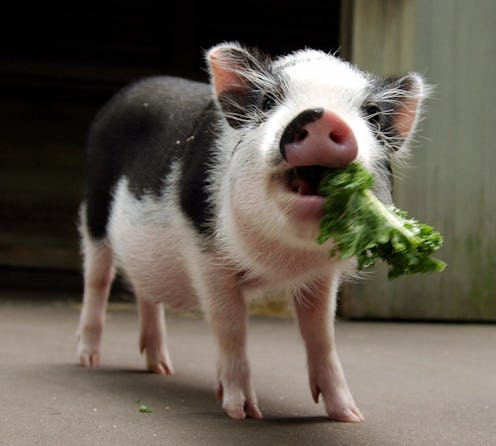Books
One Publisher Warns Against Mentions of Bacon
A major educational press is urging its writers to cut the fat, and they’re not talking about excessive prose. Oxford University Press has asked its writers not to mention pigs or pork because it might offend Muslim or Jewish readers.
This excess in caution follows the deadly attack on Charlie Hebdo, the French satirical magazine that published a cartoon image of Mohammad, and was targeted as a result. On January 7, two gunmen forced their way into the magazine offices. After hunting down and slaying editor Stéphane Charbonnier and four cartoonists, witnesses heard the shooters say, “We have avenged the Prophet Muhammad.”
Charlie Hebdo took a stand for freedom of the press by publishing yet another image of the Islamic prophet, crying and holding up a sign that reads "Je Suis Charlie." The artist behind the image, Renald Luzier, defended the image by saying, "We will not give in ... The spirit of 'Je suis Charlie' means the right to blaspheme."
Oxford University Press has taken the opposite route, choosing instead to not risk inspiring anger. They ask that references to "pigs plus sausages, or anything else which could be perceived as pork” be omitted, for the sake of cultural sensitivity.
When BBC presenter Jim Naughtie covered the story, he told his listeners the following:
Now, if a respectable publisher, tied to an academic institution, is saying you've got to write a book in which you cannot mention pigs because some people might be offended, it's just ludicrous. It is just a joke.
Nicola Prentis, an academic consultant and reviewer for the OUP, told The Guardian that pork is not the only taboo.
Things like gay relationships are an absolute no-no — a lot of writers feel why can’t we sometimes have a photo of a couple who happen to be men, without making an issue of it? Other topics we can’t mention are dogs — for a couple of reasons, because it might offend Koreans, or Muslims; cats are OK — horoscopes and gambling.
Educational publishers have an acronym they use to remember the list of topics they must avoid in their texts. Pork is not be served with a side of PARSNIP, which stands for politics, alcohol, religion, sex, narcotics, -isms, and pork. This could be why textbooks are so dreadfully dull.
Oxford University Press primary publishing director Jane Harley responded to the story in The Guardian’s Comment is Free section. She wrote that pigs and pork were not being edited out — the publishing house was just urging caution.
To address children's learning needs, it is important that they also reflect the cultural context in which children are learning. In the UK, we take it for granted that we would not include references to sex, violence, or alcohol in our textbooks; to do so would be considered inappropriate and offensive to many. In order to make an impact around the world, there are other sensitivities that, although not necessarily obvious to some of us, are nonetheless extremely important to others.
